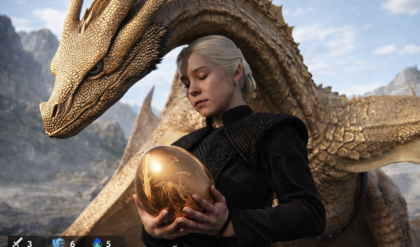The Day of the Jackal: A Reverse James Bond?
The Day of the Jackal presents a thrilling espionage narrative that subverts traditional spy tropes. Unlike James Bond, who operates as a state-sanctioned hero, the Jackal is a lone assassin, working against government forces with meticulous precision. The show blurs the lines between right and wrong, challenging the audience to question morality in a world of deception and political intrigue.
Blurring the Lines of Morality
What makes The Day of the Jackal compelling is its refusal to paint characters in simple black-and-white terms. Bianca Pullman, an MI6 agent, is not portrayed as an infallible hero; instead, she is ruthless, self-serving, and willing to bend the rules for her own gain. She manipulates allies, disregards protocol, and even resorts to ethically questionable tactics—traits often associated with classic male antiheroes. Her downfall is not a surprise but rather a testament to the unforgiving nature of the world she operates in.
At the same time, the Jackal, despite being a cold-blooded assassin, is methodical, disciplined, and arguably more competent than the intelligence agencies trying to stop him. He is not an ideological villain; he is a professional, and his calculated efficiency makes him a fascinating figure to follow. Unlike Bond, who fights for Queen and country, the Jackal fights only for himself, making him a shadowy mirror image of the spies hunting him.
Breaking Gender and Racial Stereotypes
The choice to make Bianca a Black woman further disrupts traditional spy fiction norms. Typically, characters with her level of cunning and moral ambiguity are reserved for white male leads. Her presence forces the audience to reassess their expectations—why do these traits seem acceptable in male characters but face resistance when embodied by a woman? The backlash against Bianca echoes the criticisms faced by other strong female characters in television, revealing persistent biases in media reception.
A Machiavellian Espionage Tale
A direct reference to Machiavelli in the show reinforces its exploration of power and survival. In the world of The Day of the Jackal, success is not about being the most righteous but about being the most strategic. Bianca’s downfall comes not from a lack of skill but from underestimating the ruthlessness of her opponents. Meanwhile, the Jackal thrives because he understands that in the game of espionage, morality is a liability.
A New Direction for Spy Thrillers
By flipping traditional roles and refusing to offer clear heroes or villains, The Day of the Jackal sets itself apart from conventional spy thrillers. It is not about patriotic victories or glamorous escapades; it is about survival, deception, and the cost of ambition. In this sense, it is indeed a “reverse James Bond”—a story where the protagonist is not necessarily the one we should root for, and where justice is murky at best.
With Bianca gone, the show now faces the challenge of filling the void left by such a polarizing figure. Will Nuria or another character step into a similar role, or will the narrative take a different turn? Whatever happens next, The Day of the Jackal has already proven itself as a daring, thought-provoking addition to the espionage genre.





